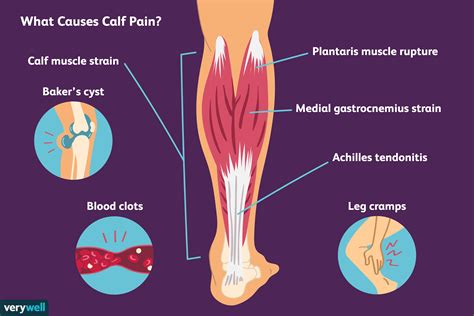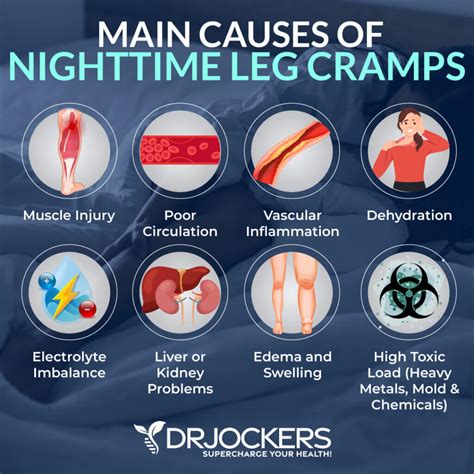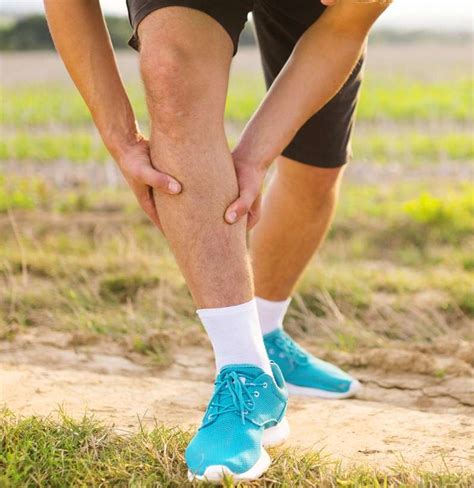Intro
Calf cramps during pregnancy can be painful. Learn about causes, relief, and prevention methods, including stretches, exercises, and nutrition tips to alleviate leg cramp symptoms and promote fetal health.
Pregnancy is a time of great change and transformation in a woman's body. As the body adapts to support the growing fetus, many women experience a range of physical symptoms, from morning sickness to back pain. One common complaint during pregnancy is calf cramps, also known as nocturnal leg cramps. These painful spasms can occur at any time, but they often strike at night, disrupting sleep and leaving women feeling exhausted and uncomfortable. In this article, we will delve into the world of calf cramps during pregnancy, exploring the causes, symptoms, and remedies for this frustrating condition.
As any pregnant woman can attest, the physical changes that occur during pregnancy can be dramatic. Hormonal fluctuations, weight gain, and changes in blood circulation all contribute to a range of symptoms, from mild to severe. Calf cramps are a common symptom, affecting up to 50% of pregnant women. These painful spasms can be triggered by a variety of factors, including dehydration, electrolyte imbalances, and pressure on the nerves. Understanding the causes of calf cramps is essential for finding effective remedies and preventing future episodes.
Pregnancy is a time of great vulnerability, and it's natural to feel concerned about any physical symptoms that arise. Calf cramps can be alarming, especially when they occur at night, causing women to wake up in pain. However, in most cases, calf cramps during pregnancy are not a cause for concern. They are a common symptom that can be managed with simple remedies and lifestyle changes. By understanding the causes and symptoms of calf cramps, women can take steps to prevent and alleviate these painful spasms, ensuring a more comfortable and restful pregnancy.
Causes of Calf Cramps During Pregnancy

Hormonal Changes
Hormonal fluctuations during pregnancy can lead to changes in muscle function and nerve sensitivity. The hormone progesterone, which increases during pregnancy, can cause relaxation of the muscles, leading to a decrease in muscle tone. This can lead to muscle spasms and cramps, particularly in the calf muscles.Dehydration
Dehydration is a common cause of calf cramps during pregnancy. As the body's blood volume increases, it can lead to fluid imbalances and dehydration. This can cause muscle spasms and cramps, particularly in the calf muscles.Electrolyte Imbalances
Electrolyte imbalances, particularly in calcium, magnesium, and potassium, can contribute to muscle spasms and cramps. These essential minerals play a crucial role in muscle function and nerve transmission, and imbalances can lead to muscle weakness, spasms, and cramps.Symptoms of Calf Cramps During Pregnancy

Pain and Discomfort
The pain and discomfort associated with calf cramps can be significant, causing women to wake up at night and disrupting sleep. The pain can be described as a sharp, stabbing sensation, which can be accompanied by muscle spasms and stiffness.Muscle Spasms
Muscle spasms are a common symptom of calf cramps during pregnancy. These spasms can be severe enough to cause women to wake up at night, and can be accompanied by pain, stiffness, and soreness.Stiffness and Soreness
Stiffness and soreness are common symptoms of calf cramps during pregnancy. The calf muscle can feel tight and sore, making it difficult to walk or move around.Remedies for Calf Cramps During Pregnancy

Stretching and Exercise
Stretching and exercise can help alleviate calf cramps during pregnancy. Simple stretches, such as toe curls and calf raises, can help loosen the calf muscle and reduce spasms.Dietary Changes
Dietary changes can also help alleviate calf cramps during pregnancy. Increasing intake of essential minerals, such as calcium, magnesium, and potassium, can help prevent muscle spasms and cramps.Supplements
Supplements, such as calcium and magnesium, can also help alleviate calf cramps during pregnancy. These essential minerals play a crucial role in muscle function and nerve transmission, and supplements can help prevent imbalances.Prevention of Calf Cramps During Pregnancy

Stay Hydrated
Staying hydrated is essential for preventing calf cramps during pregnancy. Drinking plenty of water can help prevent fluid imbalances and dehydration, which can contribute to muscle spasms and cramps.Maintain a Healthy Diet
Maintaining a healthy diet is also essential for preventing calf cramps during pregnancy. Increasing intake of essential minerals, such as calcium, magnesium, and potassium, can help prevent muscle spasms and cramps.Exercise Regularly
Exercising regularly can also help prevent calf cramps during pregnancy. Simple stretches and exercises, such as toe curls and calf raises, can help loosen the calf muscle and reduce spasms.What are the common causes of calf cramps during pregnancy?
+Calf cramps during pregnancy can be caused by hormonal changes, dehydration, and electrolyte imbalances. These factors can lead to changes in muscle function and nerve sensitivity, resulting in painful spasms and cramps.
How can I alleviate calf cramps during pregnancy?
+There are several remedies that can help alleviate calf cramps during pregnancy, including stretching and exercise, dietary changes, and supplements. Staying hydrated, maintaining a healthy diet, and exercising regularly can also help prevent calf cramps.
Are calf cramps during pregnancy a cause for concern?
+In most cases, calf cramps during pregnancy are not a cause for concern. However, if the pain is severe or persistent, it's essential to consult with a healthcare provider to rule out any underlying conditions.
In conclusion, calf cramps during pregnancy are a common symptom that can be managed with simple remedies and lifestyle changes. By understanding the causes and symptoms of calf cramps, women can take steps to prevent and alleviate these painful spasms, ensuring a more comfortable and restful pregnancy. We invite you to share your experiences and tips for managing calf cramps during pregnancy in the comments below. If you found this article helpful, please share it with your friends and family, and don't forget to follow us for more informative articles on pregnancy and women's health.
